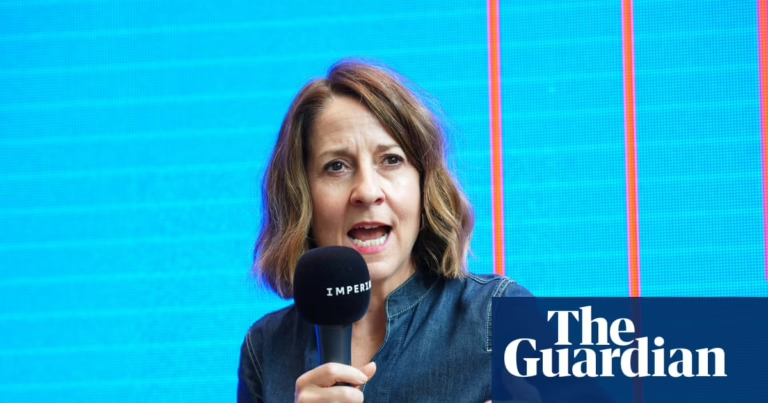A senior government advisor recently sparked concern among advocates for artists, musicians, and writers by asserting that artificial intelligence companies will never be legally obligated to pay creators for using their work to train AI models.
Kirsty Innes, who was appointed as a special adviser to Liz Kendall, the Secretary of State for Science, Innovation and Technology, stated, “Regardless of personal beliefs about whether major AI corporations should financially compensate content creators, the reality is they will not be legally required to do so.”
This statement comes amid ongoing government consultations on how to ensure fair remuneration for creatives impacted by AI technologies. Just last week, prominent UK artists such as Mick Jagger, Kate Bush, and Paul McCartney appealed to Labour leader Keir Starmer to defend creators’ rights and safeguard their intellectual property.
Innes, who previously worked at the Tony Blair Institute (TBI), removed her February posts on social media where she expressed these views, months before her ministerial advisory role began. In those deleted messages, she remarked, “Much of this is already happening and can continue beyond UK jurisdiction, no matter what laws we enact.”
She acknowledged that this reality “may be difficult for some to accept.”
The Tony Blair Institute has received substantial funding from Oracle co-founder Larry Ellison, amounting to $270 million (£210 million) last year. Oracle is a key participant in the $600 billion Stargate initiative, a project aimed at developing AI infrastructure in collaboration with OpenAI and Japan’s SoftBank.
Labour’s proposed copyright reforms have caused friction with the creative sector, particularly due to a preferred approach that would allow AI companies to use copyrighted material without explicit permission, unless creators opt out.
Meanwhile, some media organizations, including the Guardian and the Financial Times, have entered into licensing agreements with OpenAI, enabling monetization of their content within the AI company’s platforms.
The government has since shifted away from the opt-out model and established collaborative working groups comprising representatives from both the creative industries and AI developers to explore viable solutions.
Ed Newton-Rex, founder of Fairly Trained-a nonprofit that certifies generative AI firms respecting creators’ rights-and a vocal advocate for fair treatment of creatives, expressed concern: “It is troubling that Liz Kendall’s counsel includes someone seemingly aligned with big tech’s ambitions to overhaul UK copyright law.”
He added, “Hopefully, she will also seek guidance from advisors whose perspectives resonate more closely with public concerns about AI’s impact and the dominance of large technology companies.”
Newton-Rex viewed Kendall’s appointment as a chance to mend the strained relationship between the government and creative communities, which has been marred by perceived deference to tech giants. However, the involvement of an adviser who has publicly stated that AI firms won’t be required to pay creatives suggests this opportunity might be missed.
Neither Innes nor Kendall responded to requests for comment.
Beeban Kidron, a crossbench peer who has actively opposed loosening copyright protections, highlighted the gravity of the issue: “Last week, creatives sent a letter to the Prime Minister demanding an explanation for government policies that appear to violate human rights law, which guarantees individuals’ rights over their scientific and creative works. If the government continues down this path, it risks undermining UK citizens’ fundamental rights-a deeply ironic and unforgivable outcome in the eyes of the creative sector.”

















